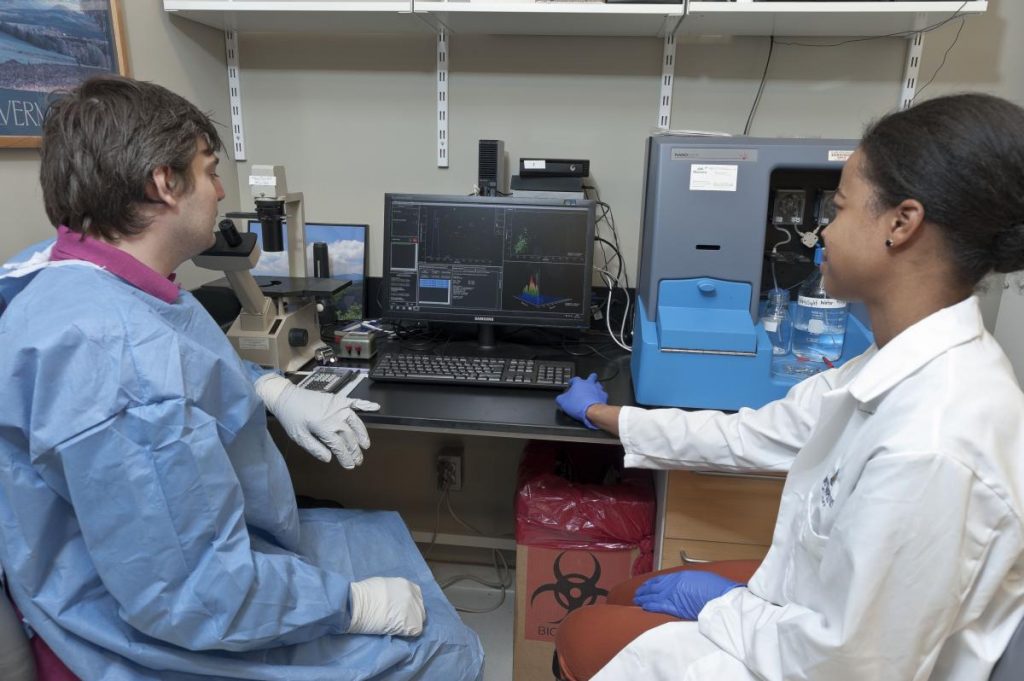Research in Our Department

The Department of Molecular and Comparative Pathobiology hosts robust and widely acclaimed research programs in HIV/AIDS, cancers, neurodegeneration, cardiovascular disease, developmental biology, and parasitic and infectious diseases. Our basic and translational research programs are bolstered by world-leading expertise in animal models of human disease, enhancing reproducibility at every step of the scientific process, from study design to best practices in animal housing, to outstanding pathology services. Housed in state-of-the-art laboratories in the Edward D. Miller Research Building, our excellent research infrastructure includes Biosafety Level 2 and 2+ laboratories for studies of infectious diseases.
A major research focus within MCP is the study of molecular virology and pathogenesis of HIV and related lentiviruses in the Retrovirus Laboratory. Beginning with investigations of sheep and goat viruses in the 1970s, the Retrovirus Lab was well poised to turn its considerable expertise to human virology in the 1980s when the initially mysterious AIDS virus was identified as HIV. The Retrovirus Lab has seven full-time faculty. The lab is a field leader in studying HIV neurologic disease, along with other manifestations of HIV disease. Today, with a shift towards HIV cure initiatives, an exciting area of focus has been HIV latency: how to detect it and reverse it. In these efforts, we work closely with other teams, such as our hall-mates in the lab of Robert and Janet Siliciano. We leverage the department’s strengths in animal systems by using SIV models as well as humanized rodents.
Cancer Biology
Research in oncology in our department is led by veterinary scientist/pathologist Dr. Kathy Gabrielson. She works with multiple investigators at Johns...
Extracellular Vesicles
Extracellular vesicles (EVs), also known as “exosomes” and “microvesicles,” are small cellular packets released from all known cell types that...
The Retrovirus Laboratory
Research in the Retrovirus Laboratory focuses on the molecular virology and pathogenesis of lentivirus infections. In particular, we study the...
